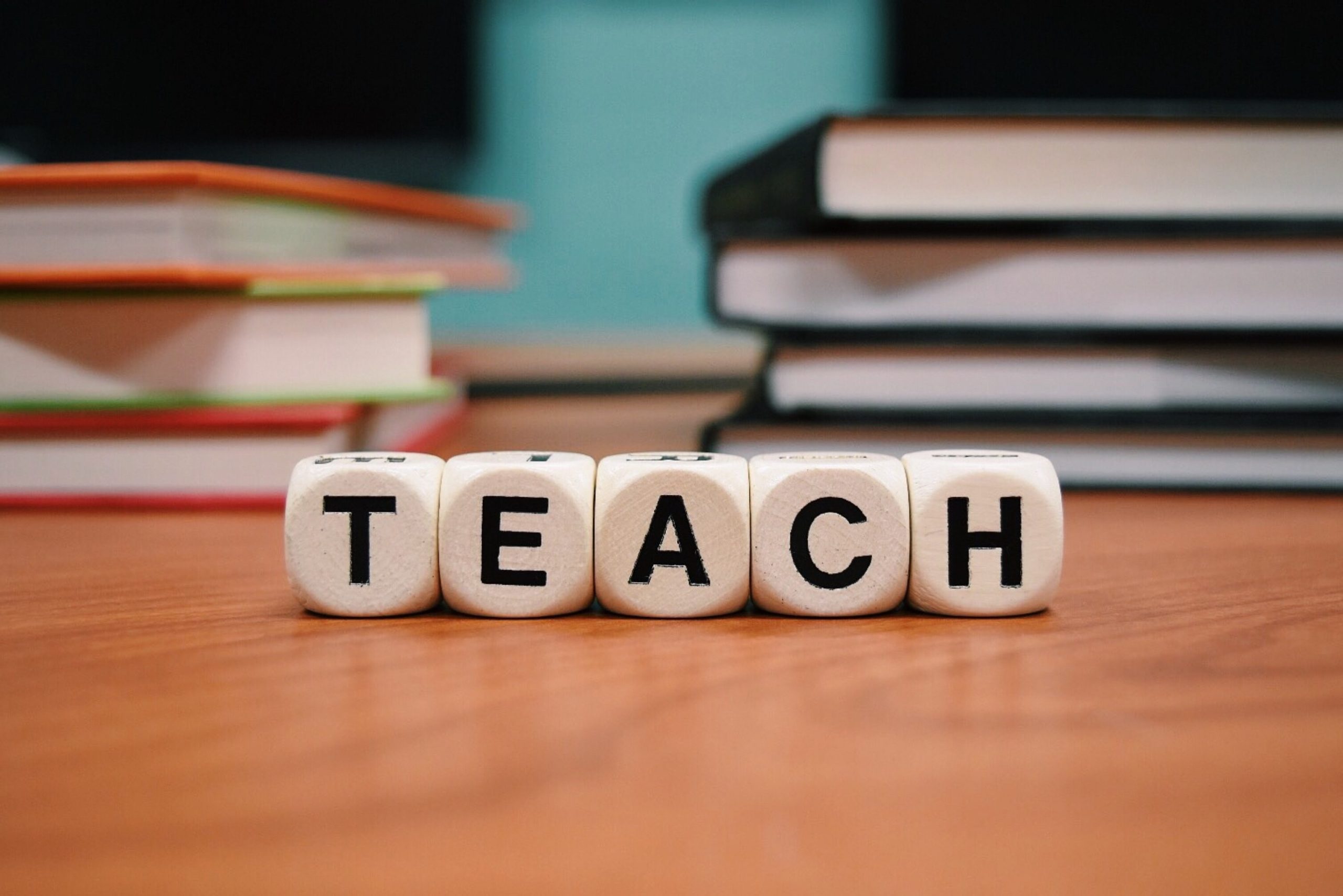This is essay is reprinted with permission from the author William Upski Wimsatt. I highly recommend his excellent books Bomb The Suburbs and No More Prisons.
When I was 14, my hero was a rapper named KRS-One who dropped out of eighth grade and educated himself by reading and apprenticing in the music business. I informed my parents that I intended to do the same, and they told me it was illegal. Having spent all my life in schools where knowledge is measured out in tiny spoonfuls, I wasn’t resourceful enough to figure out they were wrong. And, in retrospect, I admit I was a little scared.
So I stayed in high school and then headed off to Oberlin College, but my desire to pursue other avenues of education persisted. Then one summer day three years ago, I visited Reading Frenzy, a little bookstore in Portland, Oregon, and asked the owner what her favorite books were. “That one!” she said without hesitation, pointing to The Teenage Liberation Handbook: How to Quit School and Get a Real Life and Education by Grace Llewellyn. I’m not a teenager, was my first thought, and I already have a real life, thanks anyway. But I ended up buying the book and was struck by Llewellyn’s argument that learning happens naturally and school mostly just gets in the way.
When I returned to Oberlin that fall, I realized that there were no courses covering the things I most wanted to learn. No sex classes. No friendship classes. No classes on how to build an organization, raise money, navigate a bureaucracy, create a database, buy a house, love a child, spot a scam, ask the right questions, talk someone out of suicide, or figure out what’s important. Those are the things that enhance or mess up people’s lives, not whether they know economic theory or can analyze literature.
So I quit college and enrolled as a student at the University of Planet Earth, the world’s oldest and largest educational institution. It has billions of professors, tens of millions of books, and unlimited course offerings. Tuition is free, and everybody designs his or her own major.
Here’s my curriculum: Live in a different city every year. Attend a different place of worship every week. Seek out hundreds of mentors to help me find answers to my thousands of questions. Spend the rest of the time in the library and on the Internet. Create lists, make charts, and undertake the most ambitious projects I can think of. Create my own personal bible, almanac, and telephone book. Live in the poorest neighborhoods in order to learn how to get along in the world and to save money, so I can travel to a different continent each year.
I’m doing this for five years as a freshman survey course. Then I’ll have a better idea of what to pursue as a sophomore.
Of course, my course of studies keeps changing as new opportunities arise. I had to scale back on some of my goals because I need to make a living. My parents wouldn’t give me the money they would have spent on college to help me educate myself. But self-education is mainly about solving problems, so I keep looking for creative ways to learn what I want to know.
My only regret is that I didn’t start earlier. My friend Anna Fritz read The Teenage Liberation Handbook and quit Milwaukee High School of the Arts when she was 15. Instead of taking music classes, she played professionally and studied privately with a renowned cello teacher at the University of Wisconsin. Instead of taking science, she apprenticed with a botanist at a museum greenhouse. Instead of taking social studies, she worked as an organizer for Peace Action Milwaukee and represented the organization at national meetings in Washington, D,C.
Anna and I aren’t alone, We’re part of a self-schooling movement that includes people of all ages who have taken their education into their own hands. My friend John Payne was a barber in Detroit. He had faked his way through high school without ever learning how to read, but he supplemented his education by listening carefully to the men whose hair he cut. One of them was a crackhead named Willie who knew how to fix up abandoned houses. John asked Willie to teach him the trade, and now John owns 25 houses and two barbershops. And he has also taught himself how to read.
If it feels as if your education stopped after you left college, then a self-schooling program might rekindle the fires of learning in your soul. And if you’re thinking about going back to school for an advanced degree in something-or-other, let me save you $40,000 or so. Here are strategies that l’ve found useful in pursuing an education on my own.
How To Get Your DIY Degree:
1. Recognize that you’re self-motivated. “But I’m not self-motivated,” you say. Oh, really? Then why are you reading this magazine? For fun? Exactly.
2. Enjoy yourself. Give yourself permission to have fun while you’re learning whatever you damn well please from sex to the stock market, fixing your car to fighting urban blight in whatever way you please. The point of self-education is to abandon the feelings of inadequacy you picked up in school.
3. Team up with others. Self-education doesn’t mean learning by yourself. The most important thing is to find teachers who will push you to learn what you need. A book group might be a great place to start, but if it gets too comfortably chatty, then challenge the group to broaden its horizons.
4. Scare away your shyness. I was a painfully shy child. In sixth grade, I convinced my parents to let me transfer to a tough Chicago public school which at the time seemed terrifying to me. I’m not shy anymore.
5. Save all your ideas. Don’t assume that you will always remember all the best ones. I carry a notebook with me and jot down every idea I get, putting a star next to the ones I really want to pursue.
6. Act on what you learn. If you don’t change your life in some way every time you learn something, then what did you really learn? And you need to set up routines that keep offering you new challenges. One of my goals is to play a different sport each day of the week with members of a different ethnic group: Martial arts with East Asians. Capoeira with Brazilians. Soccer with Latino immigrants. Basketball with African Americans in the ghetto. Tennis with WASPs in the suburbs.
7. Attend conferences. I love conferences. They’re a great way to get inspired, immerse yourself in new ideas, and meet amazing people nobody has heard of yet. Last year I went to seven conferences in seven months: The Prairie Festival in Kansas. An African American youth leadership summit at Vassar, The Saguaro Seminar on civic engagement at Harvard, A philanthropy conference
in Seattle. A community-organizing retreat in Colorado. The Media and Democracy Congress in New York City. And the Not Back to School Camp in Oregon. All seven cost me less than $2,200, including travel and meals. (I hitchhike, ride Greyhound buses, stay with friends, and sometimes get my expenses paid for speaking at the conference.)
8. Feed and water your mentors. Most people–even famous people–feel underappreciated. If you admire someone for a specific reason, tell him or her. You’ll be surprised to learn how few people do. Tell your mentors specifically what you want to learn from them, at their convenience. I have more than three dozen mentors on my “A” list, many of whom I’ve drafted at conferences.
9. Don’t quit school if you like it. But remember, good grades aren’t the most important thing you’ll take away from college. Take time to make connections with your classmates, the activist leaders and CEOs of tomorrow.
10. Recognize that friendship is learning. This is especially true when you’re building friendships with people you find intimidating or awkward to deal with: your parents and siblings, cold-faced men in suits, brassy women, angry teenagers, nerdy cousins, bosses, New Agers, religious fundamentalists, self-righteous activists, folks who have done time, foreigners, poor people, rich people, the depressed, the egotistical. Learning to forge ties with all kinds of people and bring out the best in each other is the core of any self-education.
11. Be prepared to be scared. Learning sounds so nice and wholesome, doesn’t it? Tell that to Adam and Eve. Learning is scary and often risky because the more you learn, the more you’ll feel compelled to rearrange your basic assumptions about everything. And that brings chaos as well as excitement into your life.
12. Don’t be afraid to ask for help. I’m starting a self-schooling foundation that will make it possible for more young people, especially poor kids, to educate themselves outside of school. I’m looking for highly successful dropouts as well as enthusiastic volunteers and donors with an interest in self-education.
- Flow Experience Design: 20 Flow Triggers For Peak Performance - May 10, 2025
- How The Muse S Athena Works For EEG And fNIRS Neurofeedback - April 24, 2025
- The 10 Best Pomodoro Timer Apps For Remote Workers - April 11, 2025





 This website uses cookies to improve your web experience.
This website uses cookies to improve your web experience.
I think that a lot of people would find that the idea of self education is very enticing, and for good reasons. But at the same time I think more care should be taken to really warn people that this path is truly not for everyone; a really, really great deal of self motivation is required. Correct me if my impression is mistaken, but I quite believe that for example if a 100 people decide to self educate themselves after reading this article (or perhaps that book) perhaps only a maximum of 5-6 will actually manage to do it and benefit greatly from it – the rest would probably end up waitressing somewhere to raise money or worse, doing nothing with their lives as they’re bombared with too many choices and possibiliities.
Again I am not saying that this idea doesn’t have tremendous merits. However I think the idea really needs a well good consideration and to be honest I think most teengers might be quite immature and impetuous to make such a decision: most of them will perhaps be enticed by the fact that they won’t have to study in classrooms and read books rather than the prospect of learning as an apprentice to a biologist. And I know this is just a simple article, but even a simple article can be persuasive enough to cause years of terrible consternation to parents all over the world whose teenage daughter or son decide on a whim that they want to become students of the world. All i’m suggesting is a less more puff and a bit more disclaimer.
So according to this.. you can just go and live wherever you want.. You dont need an education to get work visas.. you dont need an education to get a job.. you dont need money to pay for rent, food and the travel expenses of this lifestyle.. I did what he did.. traveled around the world for two years and learned a lot.. but the most important lesson for me was that you have no real chance to stay somewhere without having a degree. Because you wont get proper jobs that pay you enough to sustain this lifestyle, you cant get long term visas and then at some point you will run out of money and you gotta return home to your boring life to save up to go again. But of course if this guy just talks about travelling around the US thats maybe different for him.. I guess there its possible as a citizen to do that. For me its the same in Europe, but I dont care about Europe.. Asia has my passion, and there.. unfortunately I am nothing, even with 10 years of work experience.. All that counts is that stupid piece of paper.
There are definitely some careers, particularly the professions that require a degree, but many emerging digital and creative skillsets don’t require a degree if you can show you are focused, creative and self-motivated through the websites and creative projects you have built. Also, you can freelance or start your own business and you don’t need a degree if you have real, tangible creative skills that are in-demand and you know how to promote your services.
The self-education approach is clearly not for everyone, the path has much higher risks, but also much much higher rewards.